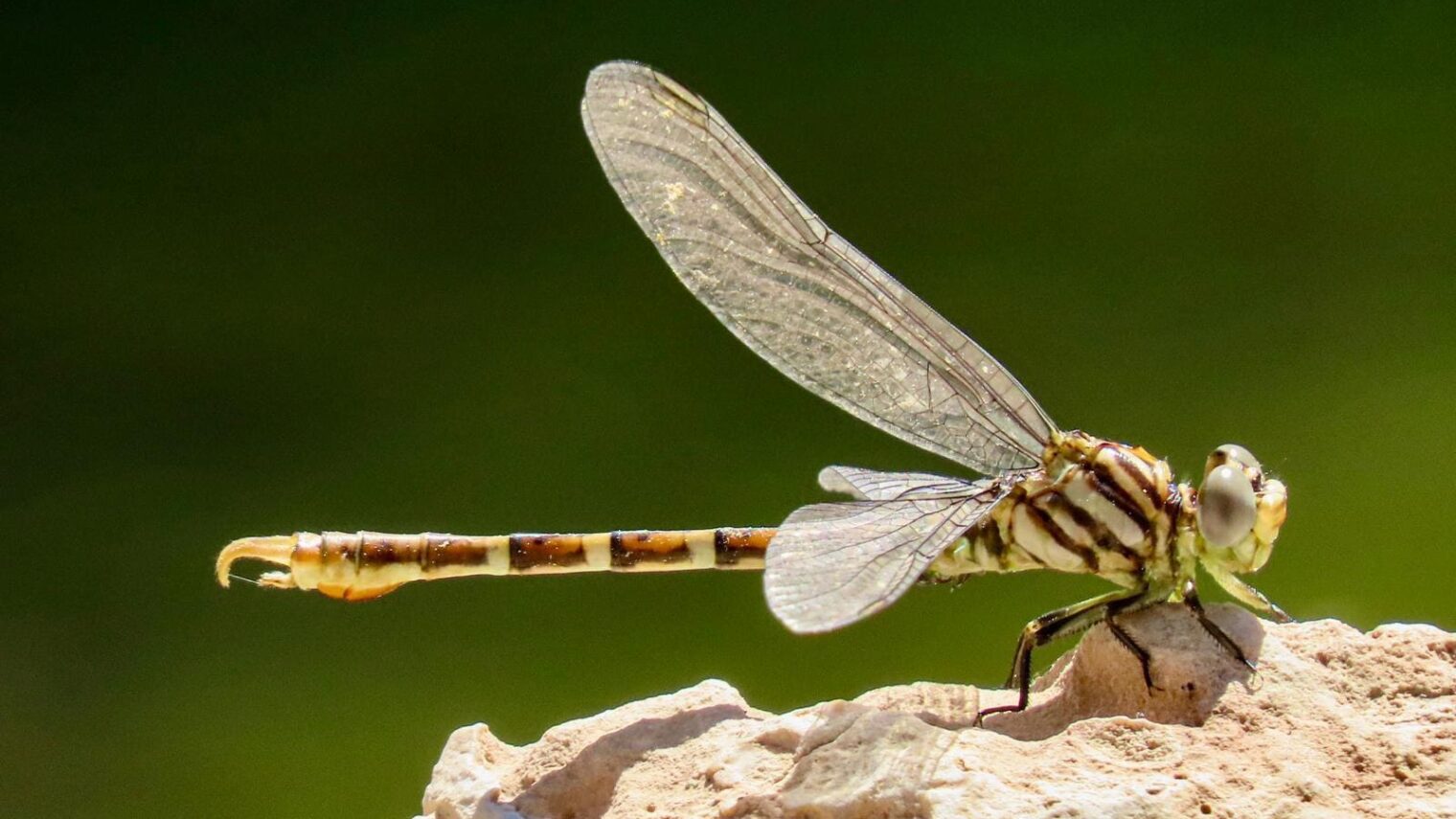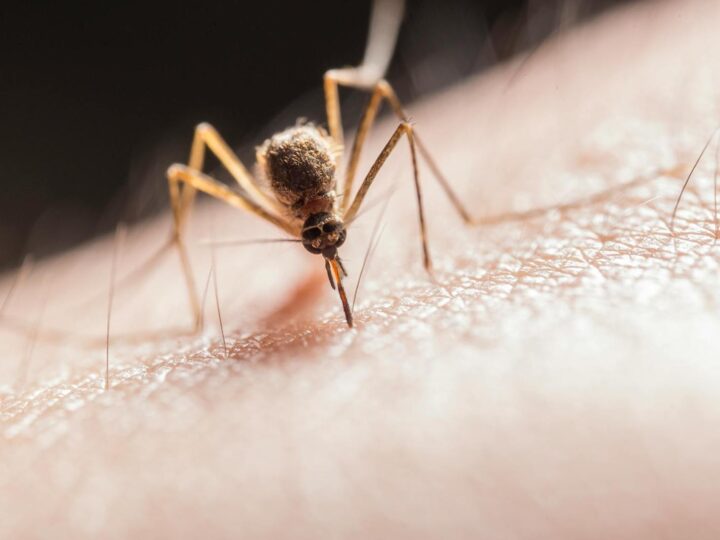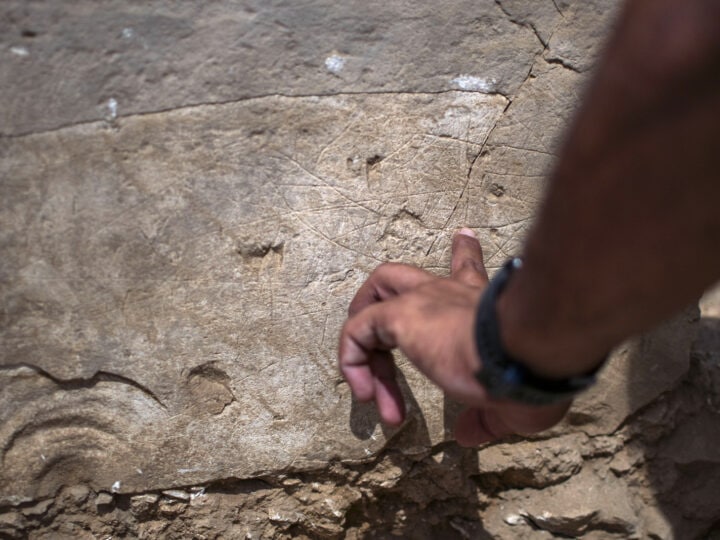In a recent nature survey conducted at Kibbutz Neot Semadar in the Arava region of southeast Israel, researchers stumbled upon a remarkable find: a species of dragonfly previously undocumented in Israel.
The discovery was made by Rea Shaish, a second-degree student at the University of Haifa and a guide and surveyor at the Bird Center of the Society for the Protection of Nature in Israel (SPNI) who specializes in dragonflies and their habitats.
Shaish, along with other experts from SPNI and the Israel Nature and Parks Authority, said the insect is a Paragomphus sinaiticus, also known as the Sinai hooktail.
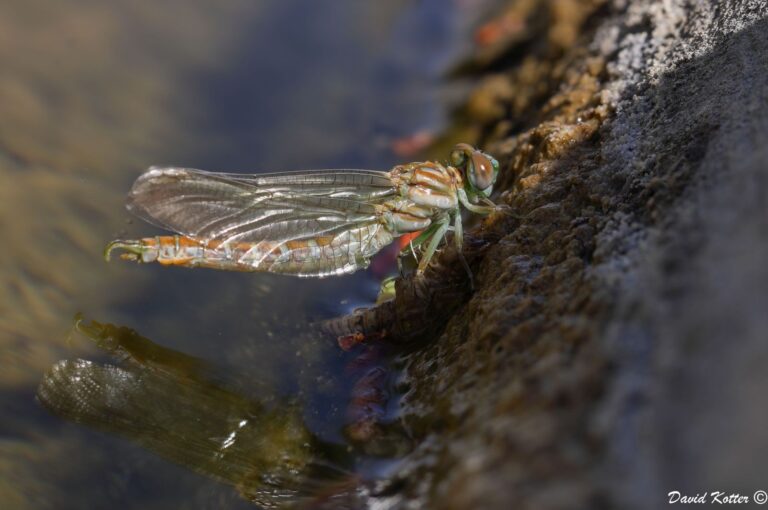
Shaish explained that the species is known to be found in regions surrounding the Sahara and Arabian deserts, including Oman, the United Arab Emirates, Saudi Arabia, Yemen, Egypt, Sudan, Chad and Niger.
Its appearance in Israel is therefore a novel discovery.
“We found a population including adults after hatching, larvae and nymphs,” Shaish said. “It’s too early to say whether this is an established population that has escaped the notice of Israeli dragonfly enthusiasts, or a passing episode. We will continue to monitor the population closely to assess its status.”
So far, “67 species of dragonflies and damselflies have been documented in Israel, some likely extinct due to the drying of their habitats, and some extremely rare and endangered,” he continued.
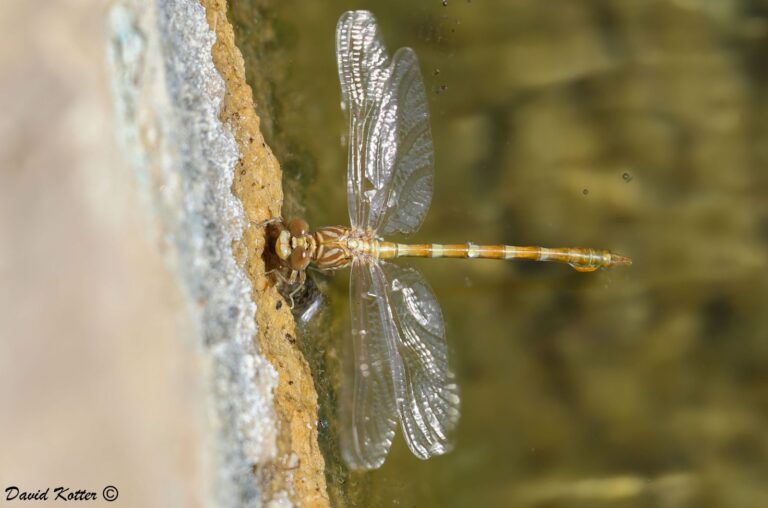
“Discovering a new species in the country is exciting, but it should be noted that a small population at the edge of its distribution range, in a small and isolated habitat, may face local extinction. We have a responsibility to learn how to preserve it.”
Teva-Biz
The discovery of the dragonfly’s presence in Israel was the result of a “bio-blitz” survey conducted by SPNI’s Teva-Biz initiative. Teva is Hebrew for “nature.”
Teva-Biz is a collaboration among businesses, organizations and the Israeli government aiming to help companies map their impacts on biodiversity, identify business opportunities and embed innovative protocols that mitigate negative impacts on nature while enhancing economic benefits from conservation.
Ana Trakhtenbrot, head of the Biodiversity Section at the Ministry of Environmental Protection, emphasized the importance of the government’s collaboration with the program in shaping conservation efforts nationwide.
“We are developing projects and tools that pave the way for integrating the importance of biodiversity conservation in the private sector, to include ecology in core activities even in private companies,” she said.
“The discovery in Neot Semadar demonstrates that these projects not only provide sustainable management tools but also yield ecological discoveries at the national level, highlighting the richness and diversity of Israeli nature.”
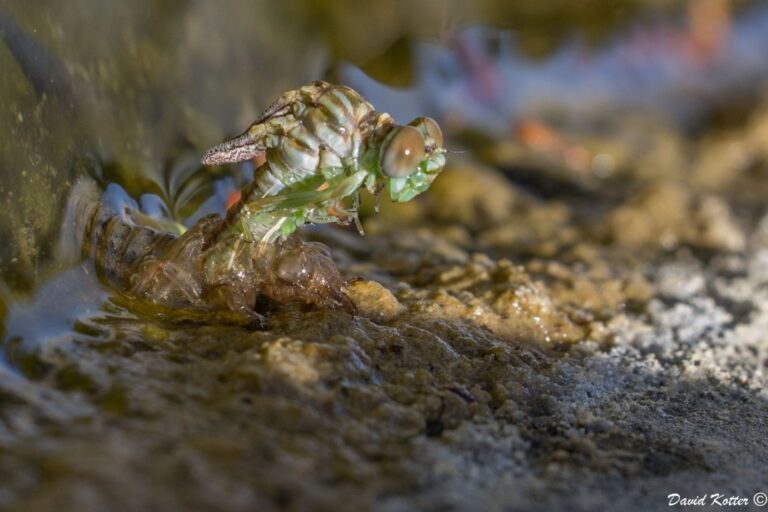
Prof. Nir Sapir, head of the Animal Flight Lab and the Department of Evolutionary & Environmental Biology at the University of Haifa, further elaborated on the finding’s implications.
“The discovery of the new dragonfly species indicates that despite many years of observations and surveys, there are still significant knowledge gaps in understanding the distribution of insects and other animals in Israel,” he said, noting that the number of people documenting the distribution of dragonflies and damselflies in Israel is limited.
“Our ability to monitor biological diversity in Israel over time to assess the impact of various environmental changes, including those originating from human activities, depends on professional efforts,” Sapir added. “Their contribution to nature conservation in Israel is crucial.”




